You may be a regular exerciser, a weekend workout freak, or a chronic sitter, but you will almost certainly know about the benefits of making stretching a habit. Stretching helps in increasing blood circulation through the muscles and helps the joints get a complete range of motion. It also helps in improving both athletic performance and posture by reducing any risks of injury and pain.
However, when doing flexibility exercises or yoga, can you tell the muscles that are getting stretched? Can you be sure that the stretches are being performed accurately?
Keeping these points in mind, you will be able to determine which are the best stretches to meet your goals. If you are going to feel any kind of pain at any time, the kind that’s not normal, you should be able to tell exactly the muscle that has a problem so that you can change the method to prevent injury.
Make sure that the stretches are felt in the muscle’s belly. Whenever you feel strain or pressure in the joints, it means that you are pushing the limits. When stretching, you should be focused on your breath. You should try to complete the movements naturally.
It is recommended not to worry about the duration for which you hold the stretch. The focus should be to feel the muscles relaxing back to their original, resting (natural) length. It can take anything between 5 and 30 seconds. When you feel that a kind of stretch is not helping, you should bring some changes.
These wonderful illustrations were developed by Vicky Timon who is a yoga specialist and authored “Encyclopedia of Pilates Exercises”, and James Kilgallon (CSCS), who created Mazlo’s Body Maintenance Program, made contributions in the form of specialist commentary.
1. Camel Pose
Targeted Muscles – External Obliques and Rectus Abdominus
This stretching is ideal for those who already have a good amount of flexibility. It involves sitting on your heels and placing your hands behind you to push your hips up and forward. Don’t put excess pressure on the lumbar spine. Those who may have neck problems shouldn’t drop their head back.
2. Wide Forward Fold
Targeted Muscles – Adductors
This exercise helps in opening your hips and stretching your hamstrings and adductors. Keep your knees bent and maintain a straight spine. When your muscles start releasing, gradually straighten your legs. Then round out the neck and try to reach for the feet.
Make a light pull on the bottom of your feet’ balls. This will help in releasing the calf muscles too. You may also use a towel or belt if it’s not possible to reach the feet. This stretching exercise can also be done on your back by keeping your feet up on the wall.
3. Frog Pose
Targeted Muscles – Adductors
This deep groin stretch puts pressure on the knees. It is best performed on some soft surfaces. Firstly you should rest on your hands and knees, and then gradually widen the knees until there is a good amount of stretch on the groin muscles. There will be minor variations in the stretching when you keep pushing the hips back and forth.
4. Wide Side Lunge Pose
Targeted Muscles – Adductors
Keep your feet forward and wide while keeping the legs straight. Bend your right knee walk your hands to the right foot, and rotate the left toes to the ceiling while sitting on the right hip. The right foot should be kept flat on the ground.
5. Butterfly Stretch
Targeted Muscles – Adductors
Get into a seated position and touch your feet soles together while sitting stall using your sit bones. Extend the stretch by putting pressure on the knees through your hands. When your feet get closer to your body, the stretch of the groin muscles will increase. Move your feet away from the hips and gradually round the upper body and this will release the back muscles.
6. Forearm Extensor Stretch
Targeted Muscles – Forearm Extensor
Pack your shoulder down and back. Rotate this shoulder externally for the best possible position for stretching your forearm muscle. When you reach this position, put pressure on the opposite hand to start the stretch. The stretch can be further progressed by touching your fingertips in the shape of a teacup.
7. Lateral Side Flexion of the Neck
Targeted Muscles – Sternocleidomastoid (SCM)
You should try to stretch the neck so that it is as long as possible. Gradually drop your ear to the shoulder without collapsing the cervical spine. The stretch can be progressed by remaining seated on the chair and getting hold of the bottom of the seat. This is going to create regular tension on your arm and neck, thus helping in targeting the upper traps.
8. Neck Rotation Stretch
Targeted Muscles – Sternocleidomastoid (SCM)
Slowly rotate your neck by maintaining the chin at a somewhat elevated position. This will help in isolating the SCM. When you desire to perform a deeper stretch, put pressure using the opposite hand from the direction of rotation.
9. Neck Extension Stretch
Targeted Muscles – Sternocleidomastoid (SCM)
Place your hands on the hips and keep your spine long. Start tilting your head back while ensuring that the cervical spine is not collapsed at all.
10. Lateral Side Flexion of the Neck with Hand Assistance
Targeted Muscles – Upper Trapezius & Sternocleidomastoid (SCM)
Keep your neck long and gradually drop your neck to the shoulder. The cervical spine shouldn’t collapse. This stretch can be performed by sitting on the chair and grabbing hold of the seat’s bottom. This is going to help in creating regular tension on your arm and neck, thus helping in targeting upper traps.
11. Half Kneeling Quad / Hip Flexor Stretch
Targeted Muscles – Psoas & Quadracep
Begin by being in a half-kneeling position. Gradually bring the right hip to the front and you will feel stretching in the front of the hip. Now hold the back foot and squeeze the back glute for increasing the stretching on the Hip Flexors.
12. Forearm Extensor Stretch
Targeted Muscles – Forearm Extensor
Pack the shoulder down and back. Rotate the shoulder externally to get into the optimal position for stretching your forearm muscles. Hold this position and put pressure on the opposite hand to start stretching. Continue with the stretching by touching your fingertips together in the shape of a teacup.
13. Lateral Shoulder Stretch
Targeted Muscles – Side Deltoid
Move your arm across your body and put light pressure on your arm to increase the stretching on the shoulder.
14. Standing Assisted Neck Flexion Stretch
Targeted Muscles – Trapezius Muscle
Stand while keeping your feet together. Keep your spine elongated and gradually sit your hips back and then around the upper back. At the same time, you should tuck your chin into the chest.
15. Lat Stretch with Spinal Traction
Targeted Muscles – Latissimus Dorsi
Hold the bar firmly and lift your feet gradually off the ground. This will create a stretch in the chest and legs. When your feet are fully off the ground, there will be a feeling of traction on the lumbar spine. You should not do this stretching if you suffered shoulder injuries recently or if there’s an impingement of your shoulder.
16. Lat Stretch at the Wall
Targeted Muscles – Latissimus Dorsi
Place both your hands on a post or the corner of a wall. Keep your spine elongated and then gradually push the hips outwards to the sides. People with lower back issues shouldn’t do this stretching.
17. Child’s Pose
Targeted Muscles – Latissimus Dorsi
Begin with your hands and knees and gradually bring your hips back so that your forehead touches the floor. Widen the knees to improve the stretch in the hips. Create an arch with your upper back and rotate your shoulders externally to stretch the chest muscles and lats.
18. Standing Calf Stretch
Targeted Muscles – Gastrocnemius & Soleus
This stretch can be performed on a rack or the stair step’s edge. Rotate the ankles both externally and internally but in a light way to stretch your calf muscles.
19. Front Split
Targeted Muscles – Hamstring & Psoas
Because this is an advanced-level stretch, you should be careful if you have any kind of hip problems. Begin with a kneeling lunge position, but you can also use the support of a chair because your hamstrings will release, and your hip will flexor.
20. Seated Forward Fold / Seated Toe Touch
Targeted Muscles – Hamstring & Calfs
Sit into the sit bones and then bend your knees if required. When there’s improvement in your flexibility, the legs will start straightening naturally. If you are suffering from any kind of back problem, make sure to keep your spine as straight as you can. This stretch can also be performed by lying on the back while keeping your feet on the wall.
21. Single Leg Forward Bend
Targeted Muscles – Hamstring
Keep one foot ahead of the other foot. Move your hands to the hips. Keep your back straight and then start bending from your hips.
22. Deep Squat
Targeted Muscles – Glutes
This motion will have a universal impact on all your body parts. If you have a problem keeping your heels on the ground or if your knees have some problem, you should practice the squat before trying this.
Stand by keeping your feet at shoulder distance and lower down into a deep squat at a gradual pace. When you are in position, move your arms within your legs and apply slight pressure on the inside of the knees, while sitting on your hips and heels. This stretching can also be performed while lying on the back and keeping feet against the wall.
23. Seated Half King Pigeon Pose
Targeted Muscles – Glutes
Get into a seated position and gradually pull your leg to the chest. Rotate the hip externally while maintaining a straight spine. The stretch will be felt in the glute.
24. Standing Calf Stretch at the Wall
Targeted Muscles – Gastrocnemius & Soleus
Get into the lunge position while keeping the back foot a little turned outwards. Gradually, move your back heel to the ground to stretch the calf muscles.
25. Lateral Flexion at the Wall
Targeted Muscles – External Obliques
Extend your spine to its full length and then gradually push the hips outwards to the sides. This stretch should be avoided if you have any kind of lower back issues.
26. Supine Twist
Targeted Muscles – Glutes & External Obliques
The Supine Twist is the perfect stretch for everyone who is trying their best to manage Sciatic Pain. Lie flat on the back and move one leg across your body. Rotate your gaze gradually and move your upper body in the other direction. The most important aspect of this stretch is to use your breath to open up your rib cage, the sacroiliac joint, and the hip area without causing excess pressure on your lower back.
If the stretch seems to be hard, you could stack both knees on one another. When you enter this position, there will be much more than a stretch on your upper spine when your knees are in a higher position. There will be more stretching on your lumbar spine when your knees are in a lower position.
27. Lateral Flexion with a Dowel
Targeted Muscles – Latissimus Dorsi & External Obliques
Keep your spine straight and long and then gradually push the hips outwards to the sides while at the same time rotating your shoulders externally. You shouldn’t do this stretch if you are suffering from some kind of lower back issue.
28. Triangle Pose
Targeted Muscles – External Obliques
Keep your front foot straight ahead to create a wide stance. Keep your back foot at 90 degrees. Put your hand on the front leg and sit back onto the front hip while keeping your back straight (you may also put your hand on the floor). When you rotate and move away from the front leg, maintain your gaze on the other hand which is in the air.
29. Chest Stretch at the Wall
Targeted Muscles – Pectorals
Face the wall and keep your thumb up. Gradually rotate and move away from the wall while stretching the chest muscle. The stretch will be felt right at the belly of your muscle. But if the stretch is felt within the shoulder joint, it means that you are stretching too much.
30. Assisted Chest Stretch
Targeted Muscles – Chest and Latissimus Dorsi
Lie on the floor and keep your palms facing upwards. When your partner sits in a deep squat, you will get a stretch in the lats and chest. It will also cause a certain amount of traction in the spine. If you suffer from an impingement in your shoulder, you shouldn’t be doing this stretch.
31. Seated Half Pigeon Variation
Targeted Muscles – Anterior Tibialis
Sit by keeping the feet in the front. Rotate your hip externally and take your one hand behind and one foot above the knee. Lean forward at a gradual pace to help increase the level of stretching, starting the motion by hinging at your hips.
32. Supine Shoulder External Rotation Stretch
Targeted Muscles – Subscapularis
Get down flat on the back and take your arm straight outwards to the side while keeping your elbow at 90 degrees. Now bring your hands back to the floor at a gradual pace. If your hand remains at a distance from the floor, it indicates that the rotator cuff and various muscles controlling internal rotation have tightness.
33. Down Dog Variation at the Wall
Targeted Muscles – Latissimus Dorsi & Pectorals
Get into a position far away from a wall/rack in a way that whenever you touch this wall your body is in parallel with the ground. Get into this position by hinging at your hips while your spine is kept straight. Then push the chest to the front to create a minor arch in the upper back, while stretching your chest muscles and lats. You should try to bend at the knees if your hamstrings are tight.
34. Assisted Chest Stretch Variation
Targeted Muscles – Pectorals
Lie on the floor with your face down and keeping the palms also facing down. When your partner pulls back on the hands, there will be a deep stretch within the chest muscles. If you have an impingement in your shoulder, you shouldn’t do this stretch.
Source: Fitness and Power


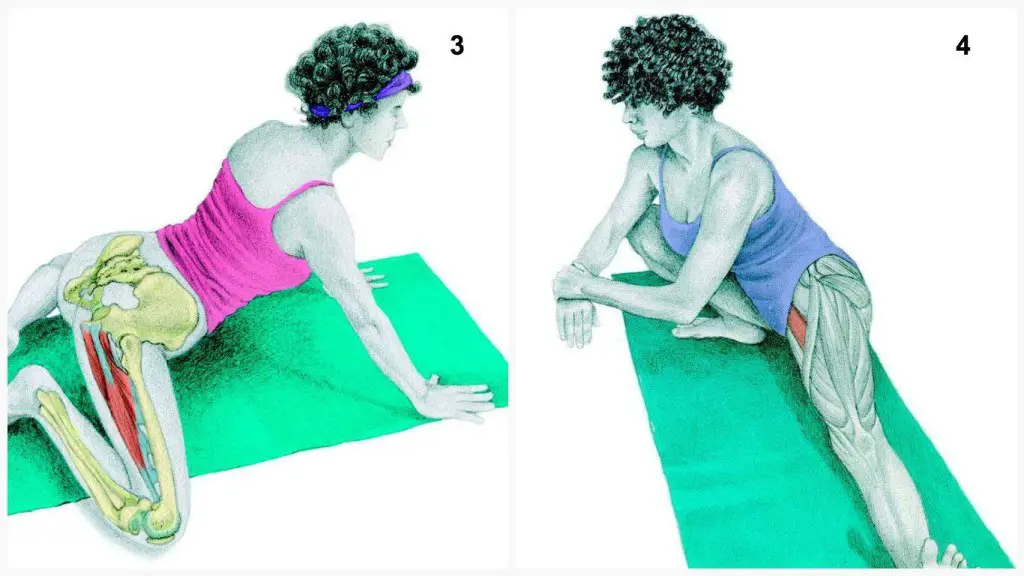
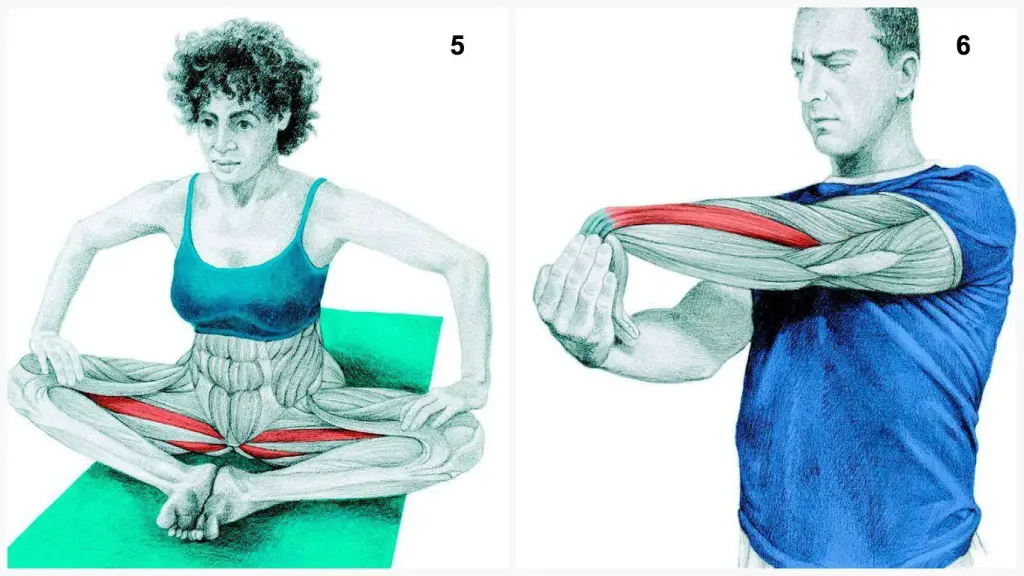
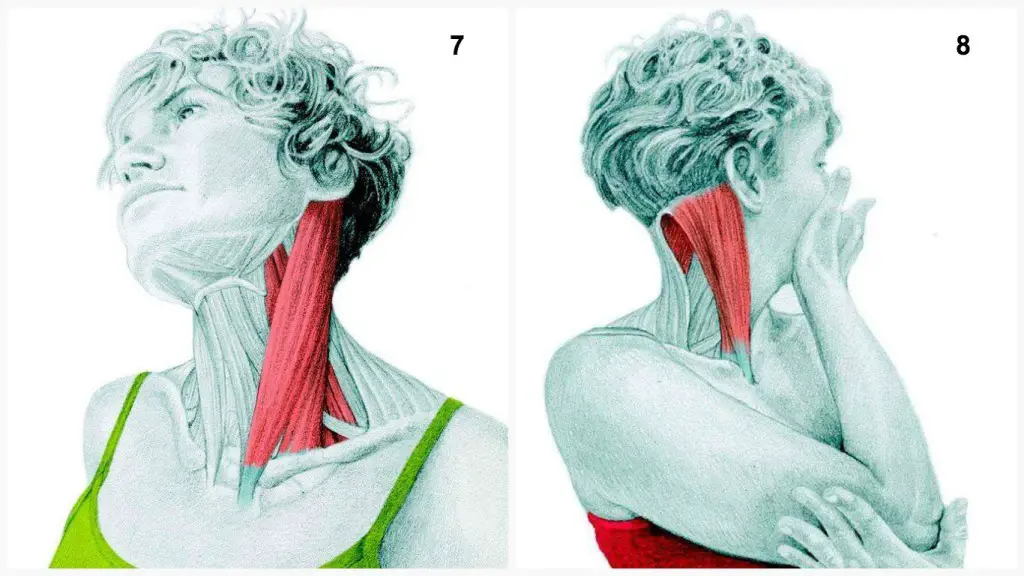
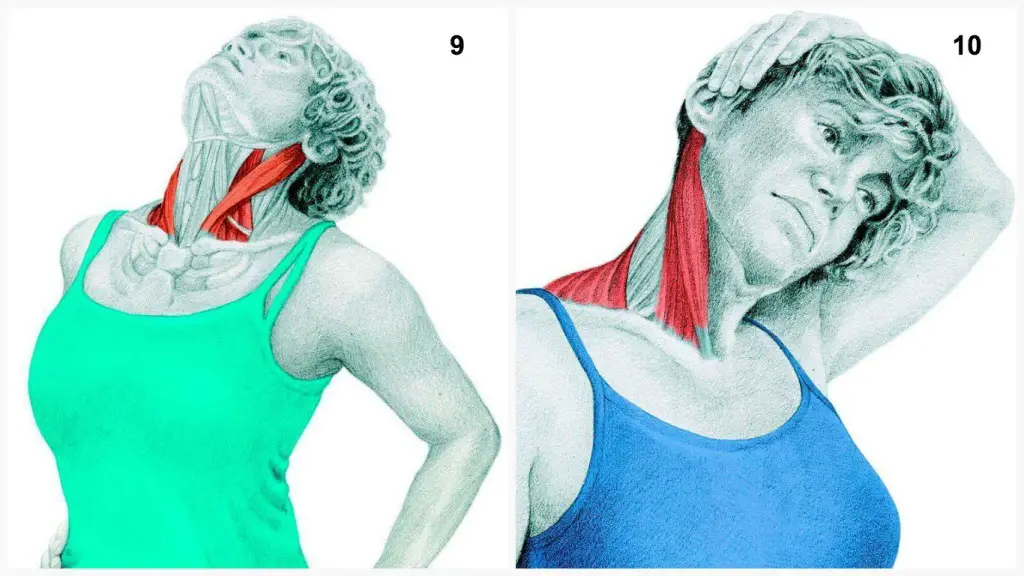
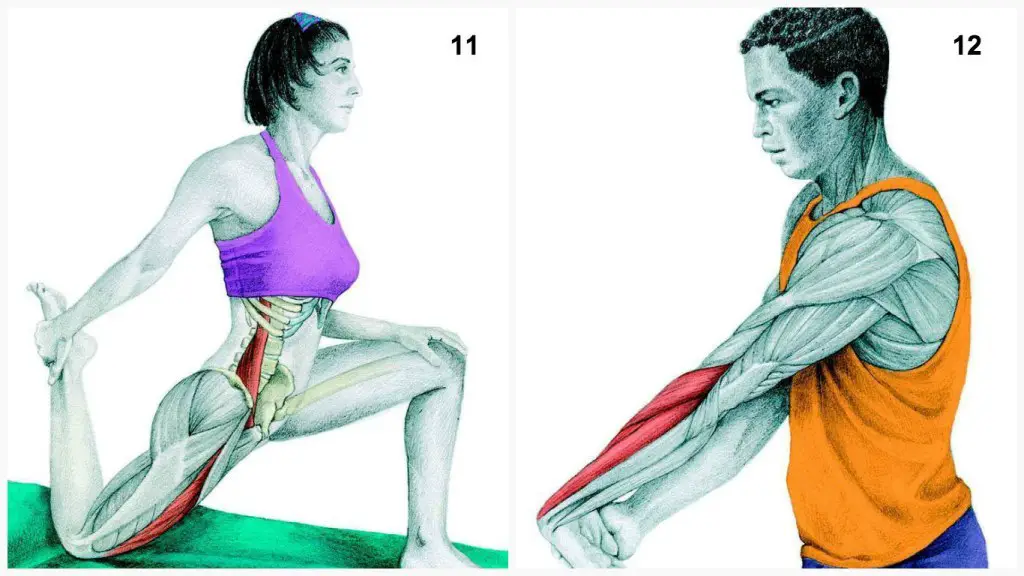
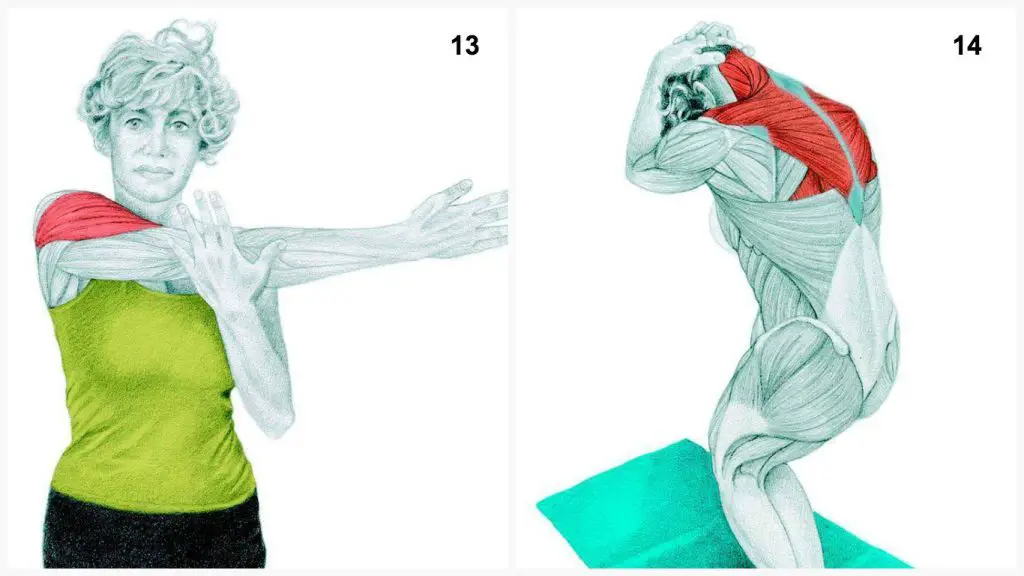
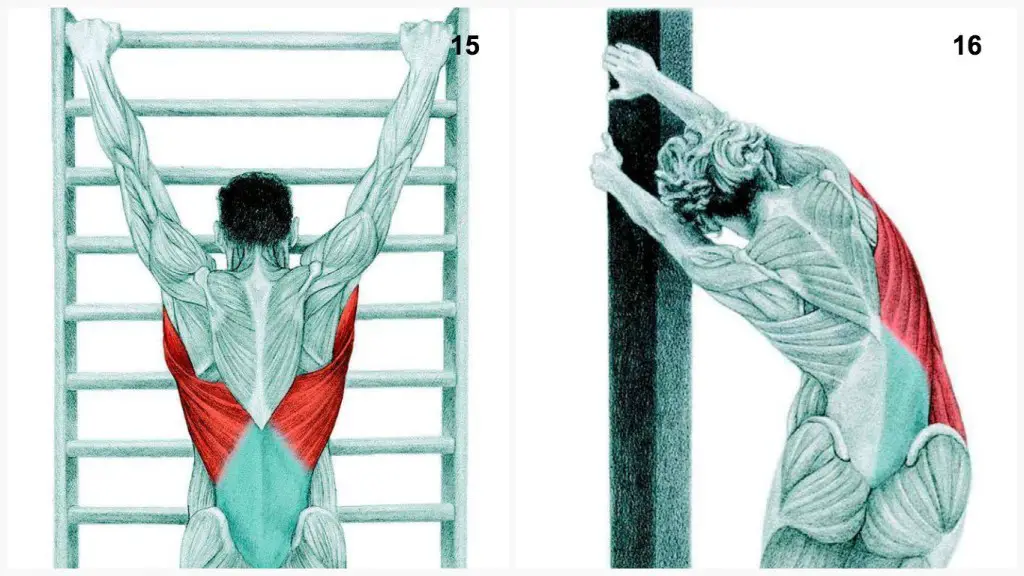
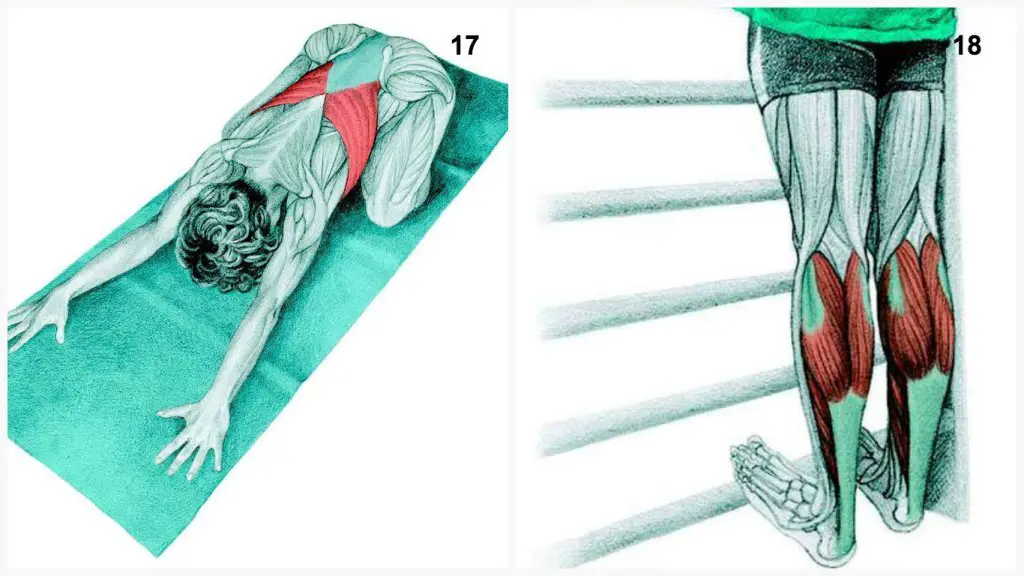
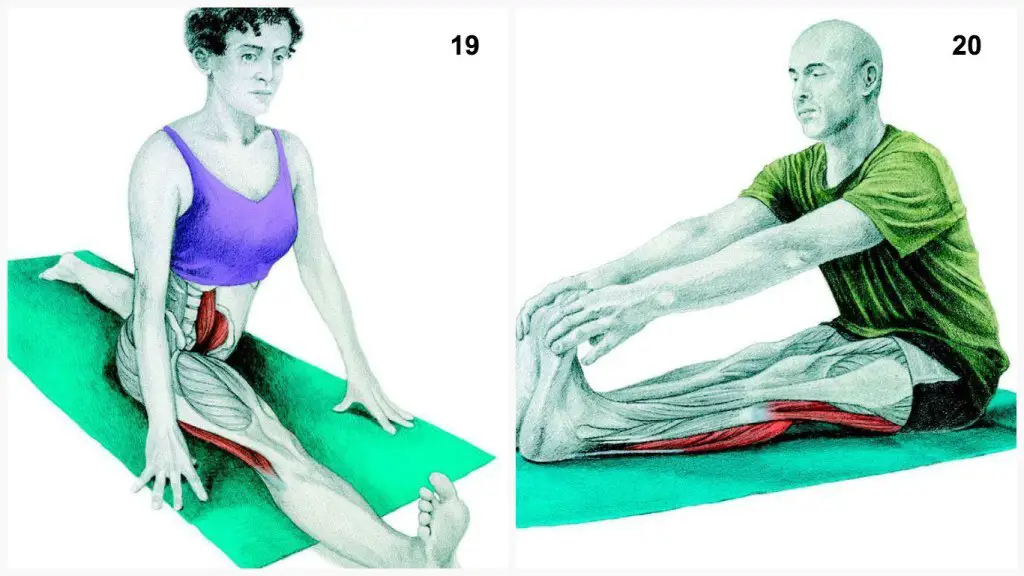
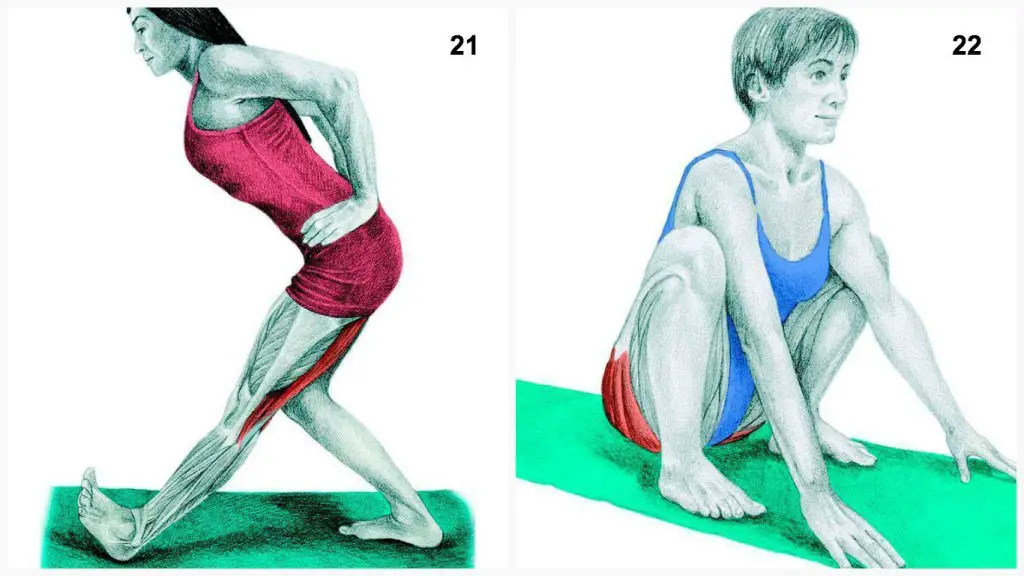
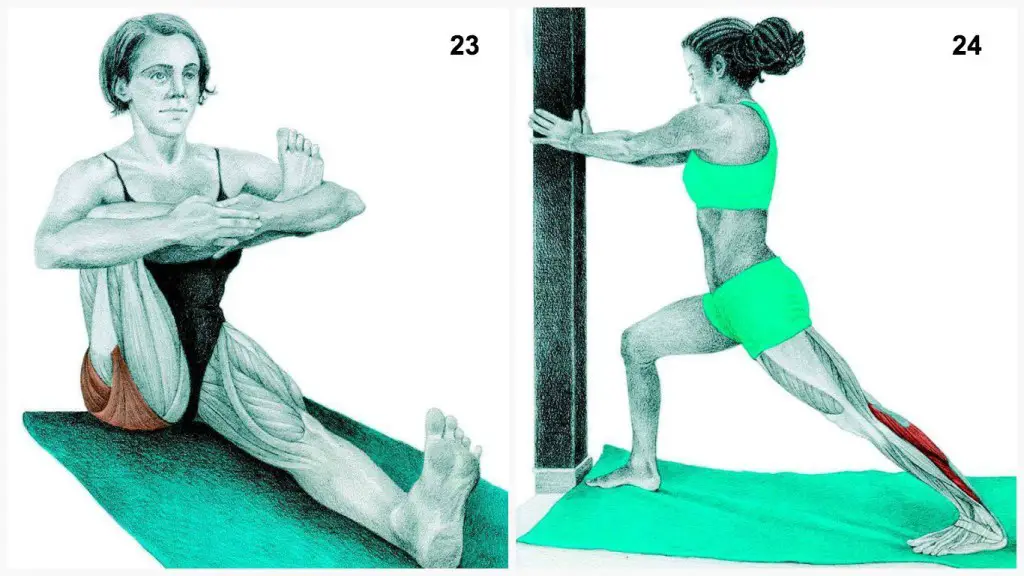
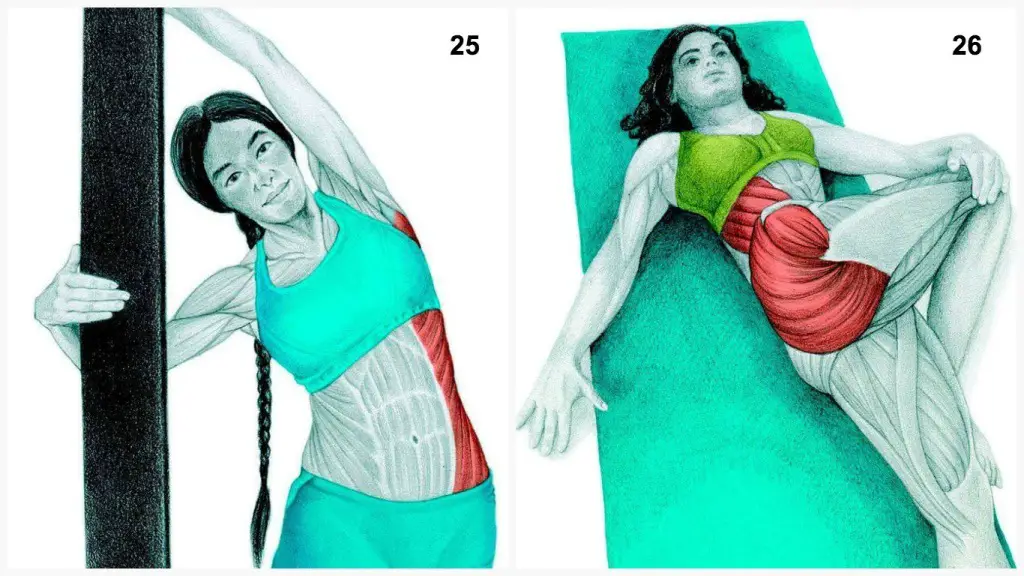
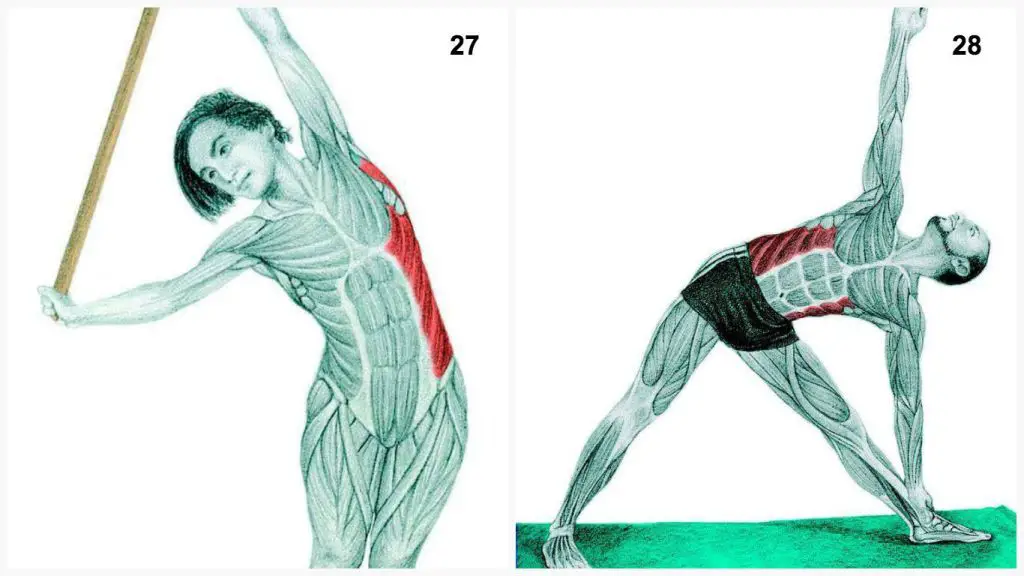
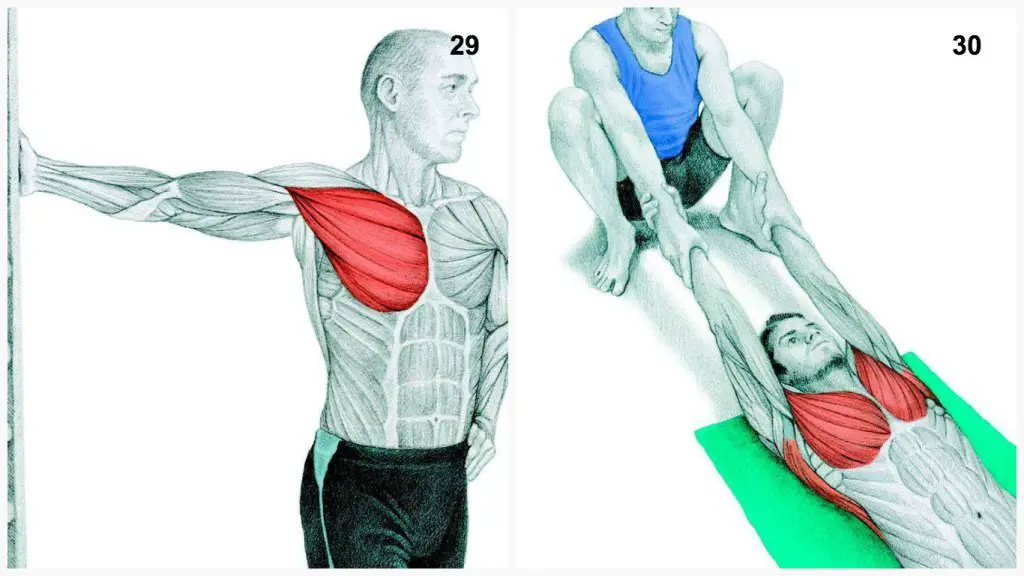
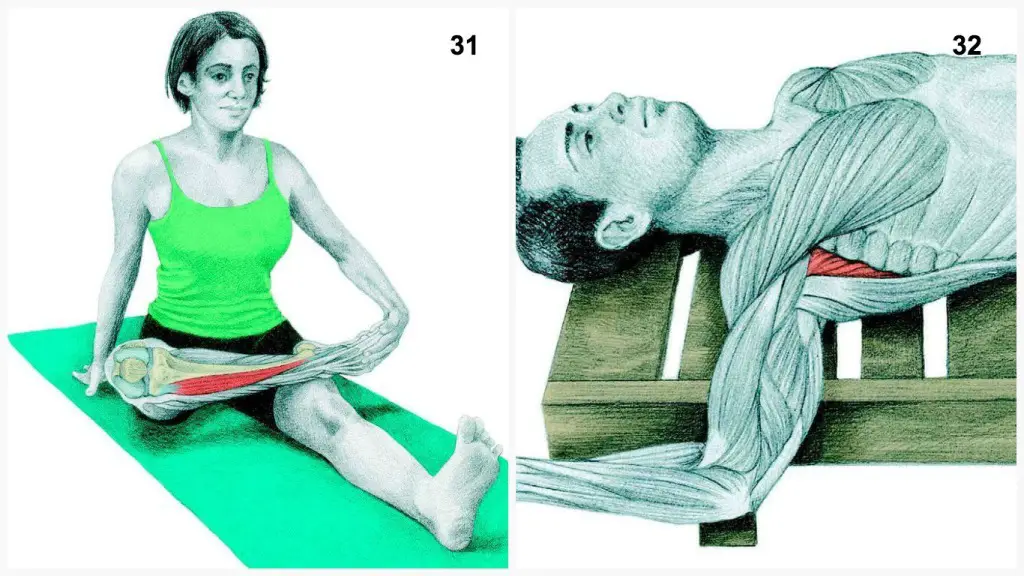
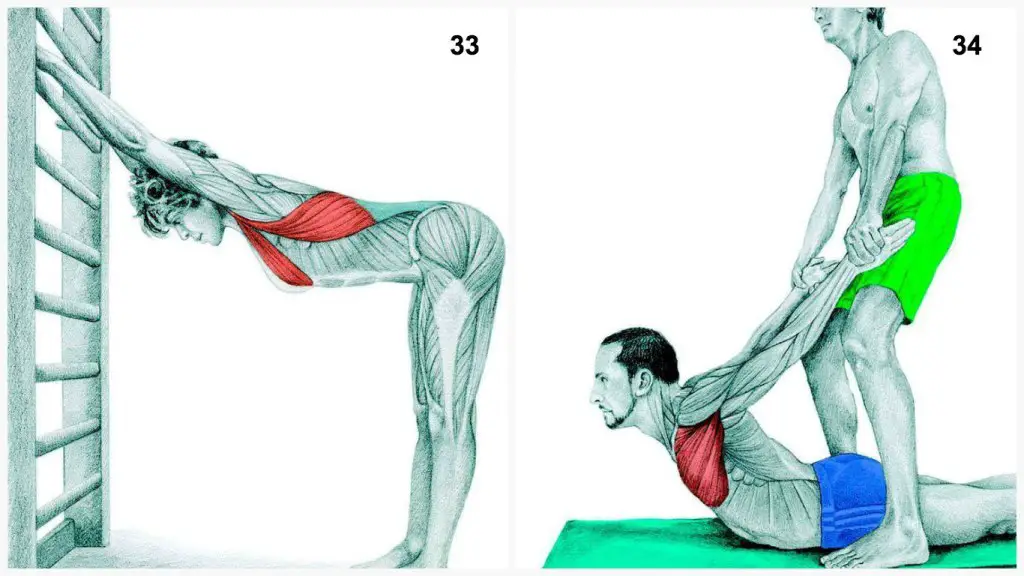
[…] healthandlovepage.com Wir sollten die Liebe teilen Tweet […]